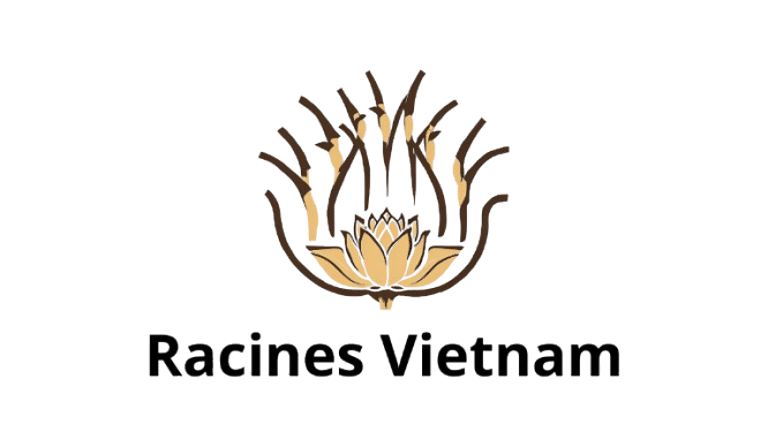“A blog created by an adopted Franco-Vietnamese for all those seeking to reconnect with their origins.”
Adoption in Vietnam in 2025: Ethical Practices, Challenges & New Laws
Discover how adoption in Vietnam has evolved by 2025: ethical reforms, domestic focus, cultural heritage, and new legal protections for adoptees.
2/24/20253 min read


Adoption in Vietnam in 2025: History, Challenges, and Solutions
Adoption in Vietnam has evolved dramatically over the past decades, transforming from a humanitarian response into a thoughtful and highly regulated legal process centered around the child's welfare.
In 2025, Vietnam’s adoption law emphasizes ethical standards, cultural preservation, and supporting adoptive families while protecting the rights of birth mothers and children.
Whether you're an adoptive parent, a single parent looking to expand your family, or someone who wants to adopt, understanding the current landscape is essential.
A Past Shaped by Humanitarian Crisis
After the end of the Vietnam War, thousands of orphans were sent abroad. Many became part of private adoption efforts or large-scale initiatives like Operation Babylift.
However, the rushed efforts led to issues: adoption-related problems like incomplete records, difficulties reconnecting with birth parents, and confusion over citizenship status.
Children placed through these early programs, often without final adoption service oversight, now face challenges accessing their adoption records for reunification purposes.
Stricter Laws and International Adoption as a Last Resort
Vietnam's modern framework, built after ratifying the Hague Convention, reshaped how waiting children are placed.
Today, domestic adoption is strongly prioritized before considering international adoptions.
Key Legal Improvements:
Thorough home studies conducted by licensed social workers.
Focus on finding kinship placements or domestic options before international options.
Protection against illegal termination of parental rights without due process.
Prospective adoptive parents must engage licensed adoption agencies, complete financial assessments (including adoption costs transparency), and be prepared for a long but essential finalization stage.
Families can also benefit from government incentives like the adoption tax credit to offset expenses.
The Rise of Domestic and Foster Care Adoption
In 2025, most adoptions involve adopting a child from within Vietnam’s foster care system.
Focusing on child welfare, Vietnam actively seeks to place foster children into permanent homes through foster care adoption programs.
"We first thought about adopting a baby internationally but realized there were many older waiting children in Vietnam needing a forever family. Adopting our daughter and her sibling together was the best decision we ever made." — Ms. Trang, adoptive mother in Hanoi.
Additionally, infant adoption is available, but highly regulated to ensure ethical practices, especially during cases involving unplanned pregnancy and expectant birth mothers.
Key Statistics in 2025
60% of adoptions involve domestic placements.
30% reduction in time between placement and finalization compared to 2020.
Over 75% of adopted children maintain connections to Vietnamese culture.
Maintaining Cultural Roots and Supporting Transracial Families
With the increase in transracial and international adoptions, Vietnam provides education for adoptive families to celebrate and preserve a child's birth culture.
Efforts include:
Parenting workshops focused on cultural sensitivity.
Heritage programs helping adoptees reconnect with traditions.
Psychological support services for children adopted across cultural or racial lines.
Testimony: Embracing a Transracial Identity
"As someone who was adopted as a child into a different culture, reconnecting with my Vietnamese heritage was life-changing. Programs offered through local adoption services were vital." — Pierre, adopted in 1998.
Understanding the Adoption Journey
Adoption is more than finding a child a home — it’s about building a safe, nurturing, and financially stable environment:
Adoption attorneys guide families through legal requirements, ensuring proper transfer of guardianship.
Licensed adoption agencies assist with fill-out paperwork and case management.
Families pursuing American adoptions must meet U.S. and Vietnamese compliance standards for citizenship and ethical procedures.
Families considering adoption should be aware of all adoption-related costs — including agency fees, court costs, and possible support services for newborn or special needs adoptions.
Frequently Asked Questions About Adoption in Vietnam
How can I adopt a child in Vietnam as a single parent?
Single parents are eligible to adopt but must complete rigorous assessments during the home studies phase and demonstrate long-term parenting capacity.
What financial support exists for adoptive families?
Families may access an adoption tax credit or receive adoption assistance if adopting older children, siblings, or children with medical needs.
What is the process for finalizing an adoption?
Finalization occurs after placement, ensuring that all legal parental rights are transferred to the adoptive family, securing the child’s place within their new home.
Can I adopt an infant through private adoption in Vietnam?
Yes, but private adoptions must comply with strict ethical guidelines, especially involving expectant birth mothers facing unplanned pregnancy situations.
What is the role of social workers and adoption agencies?
They ensure child protection, transparency, legal compliance, and family preparation for a lifetime commitment.
Conclusion: Building Forever Families with Integrity
In 2025, Vietnam's adoption process reflects a commitment to ethical practices, child welfare, and cultural respect.
Whether through foster care adoption, private adoption, or international adoptions, the focus remains clear: finding every child a loving family that embraces their history.
If you are considering adopting a baby, expanding your family after infertility, or offering a future to waiting children, Vietnam's modern adoption system is ready to guide and support you.
Adoption is not just a legal process — it’s a lifelong act of love and connection.
Main Menu:
Explorations:
Resources & Immersive Content
Community & Support
Legal & Languages
Contact & Social Networks
✉️ contact@racinesvietnam.com
📱 Instagram | Facebook | YouTube
©️ Copyright
© 2025 RacinesVietnam.com — Tous droits réservés
Site indépendant, créé sans code, hébergé par Hostinger
